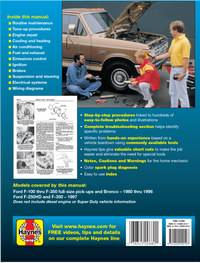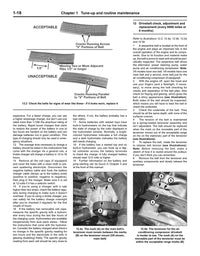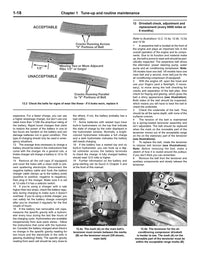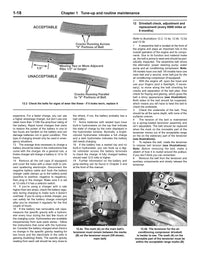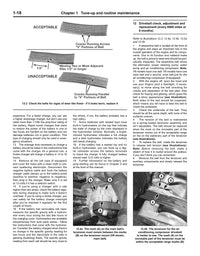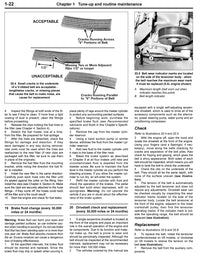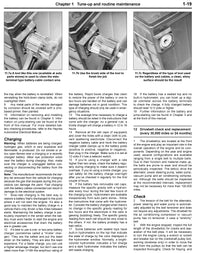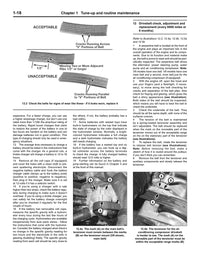A car that won’t start is the equivalent of an ashtray on a motorbike – it’s useless. You’re full of questions, chief among which is: why is my car not starting?
But as with any good mechanic (or doctor for that matter), it’s best to view non-starting as a symptom, so you need to work out the cause and sort it as soon as you can. And if you do it yourself with the help of Haynes, then you’ll be saving yourself loads of money and increasing your knowledge at the same time.
If your engine won't start
This is undoubtedly an ‘uh oh’ moment, and it manifests itself in a couple of ways. First up, there’s the moment, when you turn the key or press a button, and all you hear is a click followed by silence. Then there’s the dreaded slow churn, when the starter turns only slowly, and the engine refuses to fire up. And finally, there’s the engine spinning quickly as usual, but with no ignition.
Each of these symptoms likely has a different ‘disease’ causing the problem, and it’s down to you to diagnose it, which is why knowing the differences between them will make getting back on the road easier.

If the starter just clicks
The first thing to check is the battery, because it’s most likely dead. However, if the car won’t start but the battery is good – what now? The next step is to check the positive terminal of the battery, to make sure there’s a good connection. If there’s corrosion around the terminal, disconnect everything and clean up the terminals, then reconnect it all again.
If there’s still no sign of life, it could be a bad positive connection or bad ground at the starter. Failing that, check the starter or solenoid, because these could have failed altogether.
Finally, your engine could have seized or suffered hydro-lock, in which case you won’t be going anywhere in the immediate future.

Starter spins slowly with no engine fire
Again, the first port of call should be the battery, which is likely to be low on charge. If it is, charge it up, but if it won’t retain that charge, you’ll need to replace it.
If the battery is fine, then it’s likely that the starter or solenoid have gone bad. But if the starter is fine, then you could have some bad teeth on the starter or flywheel, so you’ll need to remove the starter to inspect both areas.

Engine turns normally but won't start
Turn on the ignition, and check your gas gauge. Is there fuel in the tank? If there is, the gas in the tank could have gone bad, so you’ll need to syphon it out and replace it with fresh gas.
However, if the gas is fine, and it’s just no reaching the engine, then it’s likely that the fuel pump has gone bad. You should hear it whine as it primes when the ignition is turned on, and if it doesn’t do that, there’s a strong chance it’s gone bad.
Fouled spark plugs can also cause an engine to fail to start, so remove them one at a time and make sure they aren’t covered in oil or soot. You can replace them to get the car going, but you need to investigate why they’re fouled up to avoid it happening again. This goes back to the whole, symptoms and diagnosis thing we talked about earlier.
Your vehicle’s ignition timing could also be off, although this is less likely with modern electronic ignition systems.
And now we get to the really bad stuff.
If your car has suffered a timing belt/chain failure, then it’s likely that lots of expensive engine internals will have come together when they should have remained apart. This can be terminal, or certainly require an engine rebuild.
And if your engine’s head gasket has failed, or if the cylinder head has become warped, then oil and water will likely have got into areas they shouldn’t, causing the engine to fail to start.

Engine fires but won't run
Frustrating. You turn the key and the engine fires, giving you that ‘yay’ feeling, only for it to die straight away. ‘Booo’.
A bad fuel pump is a likely cause, so check to see if it whirrs into life when you turn on the ignition.
Your car will also fail to run if it’s suffering a clogged fuel filter.
An air leak at the intake boot will also cause the engine to struggle to idle, and will likely be accompanied by a malfunction indicator light (MIL) on the dashboard. If you then plug in a fault code reader, you’ll easily trace the source of the issue. The same applies to a faulty temperature sensor, or other fuel injection issue.
And finally, if your car is old enough to have a carburettor, a faulty choke will make it difficult to keep running when cold.


